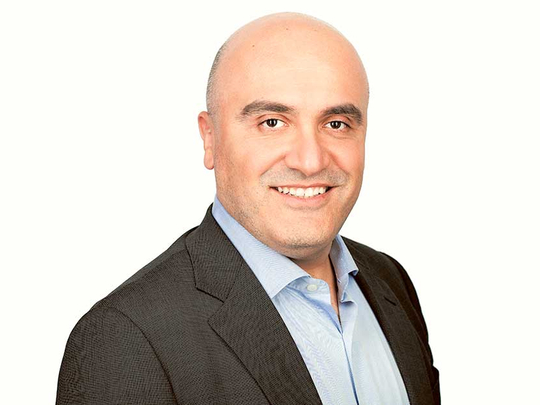
Dubai: With a wide array of new cyber threats constantly pushing IT organisations, it is no wonder that IT security is the top spending priority for most organisations worldwide.
IT security spending is only a small part of the total IT budget, but it has been steadily growing and will continue to do so.
Statistics show that the average share of IT budgets has been growing every year. According to Ponemon Institute, it was 7.5 per cent of their overall IT budgets in 2005 and 10 per cent in last year.
In Europe, Middle East and Africa, it is between 8 and 12 per cent of the IT budget on security.
Why is it growing? Many high-profile companies have been subject to hacker attacks recently and they probably won’t be the last.
“Organisations are struggling to keep up against cyber threats as cyberattacks are growing in complexity,” said Alain Kallas, Middle East managing principal for security and risk consulting at Dell Technologies subsidiary SecureWorks, a provider of intelligence-driven information security solutions.
He said that 66 per cent of the cyberattacks on organisations are discovered by third parties and 33 per cent of attacks are discovered only within two years.
For example, Yahoo revealed last week that personal information accounts belonging to at least 500 million accounts, biggest data breach so far, was stolen from its network in late 2014.
“50 per cent of the cyberattacks use evasive techniques to bypass existing controls to steal information. $3.7 million is the average cost of a breach involving records in one organisation,” Kallas said.
Kaspersky Lab estimated that every day a security breach goes undetected costs large businesses $100,000 on average, while an average cost of recovery from a breach detected within hours is less than $400,000.
Kallas said that organisations are not only finding it difficult to hire the right security professionals but also struggling to retain the talents. “75 per cent of security professionals have been approached by a hiring organisation or headhunter about IT job opportunities in the past year. 17 per cent premium paid to senior and middle level managers with security in their titles,” he said.
With security risks becoming more pervasive and difficult to prevent, he urged companies in the Middle East to be more vigilant and invest in cyber defence to protect their infrastructures.
The cyber groups are well financed because of the amount of money generated out of each transaction.
“The Darknet eCommerce, which is an environment within the internet which a common cannot access and cannot be monitored, is an illegal marketplace where criminals buy and sell stolen information,” he said.
One of the website, Evolution, makes roughly between $20 million and $25 million revenue a month. There are other sites like Tor, i2P, The Freenet Project, etc.
“It is difficult to trace them and needs huge amount of sophisticated technologies, even Cyber Threat Intelligence Units around the world find it difficult to catch them. These guys have huge salaries and life insurance, among other benefits. It is an organised cybercrime and it is a big business,” he said.
SecureWorks collects billions of events on a daily basis from over 4,300 clients across 59 countries and multiple industries worldwide.
He said that SecureWorks’ Counter Threat Platform (CTP) processes as many as 190 billion events a day, and the platform quickly determines which of these events are cyberattacks and blocks them, while providing important clues as to the hackers behind the attacks and their ultimate intent.
“It will take two to three months to detect a signature and once detected, we inform the industries to be aware that a new attack is detected and this is what you can do to protect it till further action is taken. Based on that, we can tell our clients who are the threat actors and how they operate,” he said.
Cyber security experts said that ransomware, which has been growing in leaps and bounds globally, is a lucrative and safe method of making money for criminals.
Kallas said that 55 per cent growth in quarter-on-quarter in ransomware in the second quarter of this year.
Ransomware is software that infects a computer and prevents users from accessing their data unless the user pays a ransom.
Kaspersky Lab said that the total number of users encountering any type of ransomware increased from 1.97 million in 2014 to 2.31 million users in 2015 around the world.
The cost of decryption varies — from as little as $30 to thousands of dollars. The average ransom demanded by cybercriminals is $300, and according to various sources, at least 40 per cent of the victims pay their ransom.
The victims were asked to pay between $50 and $500, depending on the data.
Symantec said that 40 per cent of global consumers have admitted to paying a ransom to attackers to unlock their computers and smartphones.
Businesses in the UAE were a victim of 2.7 per cent of global targeted attacks, with an organisation facing an average of 2.2 attacks through the year.
Over the last five years, the Middle Eastern organisations surveyed have incurred a total financial loss of approximately $1.49 million due to system perimeter breaches. Subsequently, the average cost of detecting and fixing these breaches was approximately $35.23 million.










